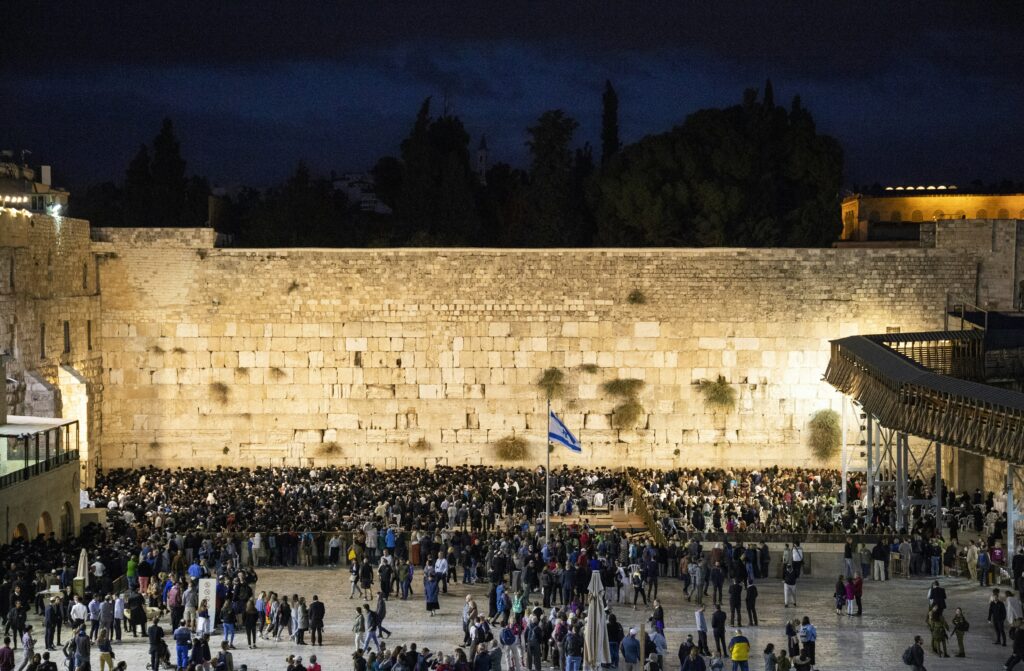In his acceptance speech for best international feature, Jonathan Glazer, the director of “The Zone of Interest,” took the opportunity to address the Israel-Hamas war. This powerful moment occurred amidst the glitz and glamour of the Oscars, where “The Zone of Interest” was recognized for its poignant storytelling. While “Poor Things” secured three Oscars for its outstanding costume design, makeup and hairstyling, and production design, other notable achievements included Da’Vine Joy Randolph winning best supporting actress for her remarkable performance in “The Holdovers,” and “Godzilla Minus One” taking home the Oscar for best visual effects. However, it was Glazer’s sincere and thought-provoking comments about the conflict that resonated with audiences and left a lasting impact. Notably, Jennifer Lame also received recognition for her impeccable work on “Oppenheimer” with the Oscar for best editing.

Introduction
Overview of Jonathan Glazer’s acceptance speech
Jonathan Glazer, the renowned director of the film “The Zone of Interest,” made waves during the Oscars when he chose to address the Israel-Hamas war in his acceptance speech for best international feature. Glazer’s decision to bring attention to the ongoing conflict added a deeper layer of meaning and significance to his film and sparked a broader conversation about the role of art in social commentary.
Context of the Israel-Hamas war
The Israel-Hamas war has been a longstanding and complex conflict that has garnered international attention and concern. The war, which started due to political, territorial, and ideological disputes, has resulted in significant casualties, displacement, and suffering for both Israelis and Palestinians. Against this backdrop of adversity and discord, Glazer’s decision to highlight the war in his acceptance speech demonstrated his commitment to using his platform as a filmmaker to raise awareness and provoke thought.
Jonathan Glazer’s Film, ‘The Zone of Interest’
Brief summary of the film
“The Zone of Interest,” directed by Jonathan Glazer, is a powerful and thought-provoking film that delves into the depths of human morality and the atrocities committed during the Holocaust. Set in Auschwitz, the narrative follows the lives of various characters, including SS officers and Jewish prisoners, intertwining their stories in a compelling exploration of love, guilt, and the complexities of good and evil.
Reception and critical acclaim
Glazer’s film, “The Zone of Interest,” received widespread critical acclaim upon its release. Critics lauded the film for its unflinching portrayal of the Holocaust and its ability to provoke introspection and examination of the darkest aspects of humanity. The film’s nuanced storytelling, powerful performances, and meticulous attention to detail garnered praise from both audiences and industry professionals alike, positioning Glazer as a visionary filmmaker with a distinct voice and a knack for tackling challenging subject matters.

The Oscars and Glazer’s Acceptance Speech
Explanation of Jonathan Glazer’s win at the Oscars
Jonathan Glazer’s win at the Oscars for best international feature was a well-deserved recognition of the artistic and thematic depth of “The Zone of Interest.” The film’s masterful direction, compelling narrative, and exceptional performances captivated audiences and resonated with the Academy voters, who acknowledged Glazer’s contribution to the cinematic landscape.
Reference to other winners during the ceremony
While Glazer’s win was undoubtedly significant, it is important to note the other notable winners at the Oscars that evening. “Poor Things” walked away with three Oscars for costume design, makeup and hairstyling, and production design, showcasing the film’s creative and technical prowess. Da’Vine Joy Randolph was awarded best supporting actress for her impactful performance in “The Holdovers,” while “Godzilla Minus One” secured the Oscar for best visual effects. Jennifer Lame was recognized for her exceptional editing work on “Oppenheimer,” further emphasizing the talent and diversity within the film industry.
Addressing the Israel-Hamas War
Explanation of Glazer’s decision to address the war
Jonathan Glazer’s decision to address the Israel-Hamas war during his acceptance speech was met with surprise and admiration. In his speech, Glazer expressed his concern and deep sadness about the ongoing conflict, calling for a renewed focus on peace and dialogue. By utilizing this moment on a prestigious stage, he aimed to draw attention to the human suffering caused by the war and to foster discussion around its resolution.
Connection between the film and the conflict
“The Zone of Interest” resonated with Glazer on a personal level, as its exploration of the Holocaust represents the ultimate consequence of a society fueled by hatred and division. Glazer saw parallels between the historical atrocities depicted in his film and the ongoing violence in the Israel-Hamas conflict. Both situations involved the dehumanization of a specific group and the urgent need for unity, compassion, and understanding.
Impact and reception of his remarks
Glazer’s remarks on the Israel-Hamas war generated significant attention and ignited discussions across various media platforms. While some applauded his courage to address a pressing global issue, others criticized him for bringing politics into a celebratory event. Nonetheless, Glazer’s speech succeeded in raising awareness about the conflict and encouraging conversations about finding peaceful resolutions.

Glazer’s Perspective on the Israel-Hamas War
Insights into Glazer’s personal views
Jonathan Glazer’s remarks during his acceptance speech shed light on his personal perspective regarding the Israel-Hamas war. He expressed concern for the innocent lives caught in the crossfire and emphasized the importance of empathy, understanding, and the pursuit of peace. Glazer’s desire to use his platform to advocate for compassion and dialogue reflects his belief in the power of storytelling to inspire change and bring people together.
References to specific aspects of the conflict
Glazer’s understanding of the Israel-Hamas war was informed by his research and engagement with the subject matter. He acknowledged the complexities of the conflict, recognizing the historical, political, and religious factors that contribute to its perpetuation. Glazer also highlighted the urgent need for global cooperation and diplomatic efforts to address and resolve the root causes of the conflict, emphasizing the importance of considering multiple perspectives and narratives.
Artistic Expression as a Medium for Social Commentary
Discussion on the role of art in addressing political issues
Art has long been a powerful medium for addressing political issues and sparking conversations. Through films like “The Zone of Interest,” filmmakers can explore complex societal conflicts and illuminate the human stories within them. Artistic expression allows for the portrayal of diverse perspectives, fostering empathy and understanding among viewers. By confronting difficult subjects, artists like Glazer can challenge societal norms, provoke thought, and contribute to the ongoing discourse on pressing global issues.
Examples of other films that tackle societal conflicts
Glazer’s decision to tackle the Israel-Hamas war in his acceptance speech is not unique in the realm of filmmaking. Numerous films have delved into societal conflicts, shedding light on the complexities and consequences of violence, oppression, and injustice. Movies such as “Schindler’s List,” “Hotel Rwanda,” and “Blood Diamond” have used storytelling as a means to provoke audiences and promote discussion surrounding historical and contemporary conflicts.
Controversy and Reactions
Stating contrasting viewpoints and reactions to Glazer’s speech
Glazer’s speech addressing the Israel-Hamas war elicited various reactions from the public and the media. Supporters praised him for using his prominent platform to shed light on an ongoing humanitarian crisis, applauding his courage and commitment to raising awareness. Conversely, some critics deemed his speech inappropriate, arguing that political statements had no place at an event meant to celebrate cinematic achievements. The diversity of reactions underscored the immense influence and reach that Glazer’s speech had, drawing attention to the complex relationship between art, politics, and public discourse.
Analysis of both support and criticism
Amidst the differing viewpoints, it is crucial to analyze the support and criticism directed towards Glazer’s speech. Supporters argue that artists have a responsibility to engage with pressing global issues and utilize their platform to promote positive change. They commend Glazer for highlighting the Israel-Hamas conflict and encouraging dialogue. Critics, on the other hand, stress the need to separate art from politics, suggesting that awards ceremonies should remain apolitical. This debate prompts reflection on the intersection of art and politics and the role of artists in shaping public opinion.
Further Conversations on the Israel-Hamas War
Encouragement for dialogue and engagement with the issue
Glazer’s speech serves as a call to action, urging individuals and communities to engage in open dialogue about the Israel-Hamas war. By fostering conversations, raising awareness, and encouraging empathy, people can work towards a deeper understanding of the conflict’s complexity. Glazer’s speech should serve as a catalyst for educational initiatives, public forums, and other gatherings aimed at bridging gaps, promoting peace, and advocating for a resolution to the ongoing violence.
Related events and discussions
In the wake of Glazer’s speech, it is anticipated that there will be an increase in related events and discussions surrounding the Israel-Hamas war. The film industry, academia, and various organizations may arrange panel discussions, film screenings, and exhibitions to delve deeper into the complexities of the conflict. Such events offer opportunities for individuals to engage, listen, and learn from one another, fostering understanding and creating a more informed public discourse.
Impact on Glazer’s Career
Exploring potential consequences and opportunities for Glazer
Glazer’s decision to address the Israel-Hamas war may have both positive and negative implications for his career. On one hand, his courageous act may resonate with audiences, leading to increased support and acclaim for his work. On the other hand, the controversy surrounding his speech could potentially alienate certain segments of the industry and audience. However, for many filmmakers, artists, and enthusiasts, Glazer’s speech demonstrated his commitment to utilizing his platform for social change and could open new doors for him to explore other meaningful projects.
Relevance of his speech in the film industry
Glazer’s speech marked a significant moment in the film industry, highlighting the potential of cinema as a tool for social commentary. It ignited discussions around the responsibility of artists, the role of awards ceremonies in addressing global issues, and the impact of political statements on the public sphere. Glazer’s remarks served as a reminder of the film industry’s power to influence public perception, shape opinions, and contribute to broader societal dialogues.
Conclusion
Summary of key points
Jonathan Glazer’s acceptance speech at the Oscars, where he addressed the Israel-Hamas war, sparked a significant conversation about the role of art in social commentary. Glazer’s film, “The Zone of Interest,” provided the thematic foundation for his speech, with its exploration of the Holocaust drawing parallels to the ongoing conflict. Glazer’s personal perspective and his desire to use his platform to advocate for peace and dialogue highlighted the power of art in addressing political issues. The reactions to his speech revealed the diversity of opinions and the complexities surrounding the intersection of art and politics.
Reflection on the significance of Glazer’s speech
Glazer’s decision to address the Israel-Hamas war in his acceptance speech marked a significant moment in the film industry. It showcased the transformative potential of art, its ability to ignite conversations, and its influence on public discourse. Glazer’s speech encouraged dialogue, reflection, and a renewed focus on the ongoing conflict, underscoring the impact that artists can have in shaping societal perceptions and advocating for change. As the reverberations of his speech continue to be felt, it is evident that Glazer’s words will leave a lasting imprint on both the film industry and the broader conversation surrounding the Israel-Hamas war.

